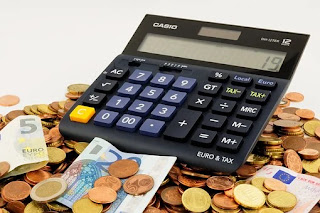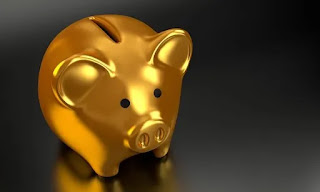With a little discipline and know-how, it is possible that at the end of the month there are at least a few euros left in the account. Many people are probably wondering that. You can easily save with these tips.
According to a current survey from 2019, about half of all people have no money left at the end of the month. About a third of the population has no savings. Inadequate income is often given as the reason. The result is that you have a negative account, have to borrow money or maybe use your credit card. But there are other ways that you can even get something back at the end of the month, even if you don't earn that much.
Understanding finances can make a big difference if you are going to be saving, especially when it comes to buying a house. Reed Pirain talks all about the differences in refinancing and how you can borrow against your home equity and that can help with financial education. Saving money should be easy but don't put too much pressure on yourself!
1. Start at zero
Before you start with the following measures, you should first make sure that the account is balanced and not deep in the red. To do this, you should first make a household schedule. This shows how much money you can use to make up for the overdraft facility. However, one should bear in mind that only overdraft interest comes to you.For the list, you first write down what income you have per month. This can be the salary and other funds that are available per month. All possible monthly running costs are deducted from this. This includes rent, utilities, electricity, internet, cell phone, groceries and other fixed costs that regularly go to the account.
If there is anything left, you should use this amount to gradually balance the account. In order to avoid further interest arising from the overdraft, it is possible to take out a loan to offset the overdraft facility. Interest is usually much cheaper here.
In addition, you can conveniently pay off the loan in low instalments. However, you should make sure that you do not overdo it and possibly become even more indebted.
If no excess amount comes out during the installation, you have to ensure that the monthly fixed costs are reduced.
2. Keep a budget book
The Japanese call it kakebo, here we just call it a household book. People who keep a household book always have an overview of their own finances. The first step in keeping the budget book is to keep a record of your income and expenses.It is often the case that all costs are debited from the account every month and you simply do not have an overview of what is going on and when. The budget book is kept clean and regularly updated. This creates an understanding and a feeling for the money and prevents unnecessary items from being retained in the long run.
Because with the help of the household book you have the set screws that you have to turn to make monthly savings. This works particularly conveniently via various apps that can even be used to plan budgets for individual days.
3. Check energy contracts
Electricity contracts, for example, offer great savings potential. Often one can compare corresponding tariffs with one another on various portals. If you change the electricity provider every one to two years, in the best case you can even save several hundred euros a year. The same applies to suppliers of gas. Corresponding comparison options can also be found on the Internet.4. Throw away less
About a third of all food ends up in the garbage. It is rather tragic and sad. Here you should check your own behaviour. Food waste is not only bad for the environment, but it also affects your wallet. In principle, it is a simple calculation: food that does not end up in the garbage is eaten, which in turn fills you up and less money has to be spent.It often fails on the best before date. Food that has expired is not immediately fatal, but in most cases is still edible. Here you shouldn't necessarily rely on numbers but on your own sense of smell and taste. The exception is meat and eggs. The risk of salmonella is simply too great here.
So before you go shopping, you should first check the refrigerator and supplies to see if you can use them to make something delicious before spending money in the supermarket again.
5.Shop sparingly
If the fridge looks empty, you shouldn't rush it and don't go hungry. If you shop in the supermarket on an empty stomach, you tend to put too much unnecessary stuff in the shopping cart. So be careful before buying impulses.Before you go shopping, you should definitely make a shopping list. This also protects against impulse purchases. Since you know exactly what you want, you go through the shelves in a more targeted manner and don't let yourself be distracted by other things.
6. Shop clothes sparingly
In general, you should be economical without money. Sometimes, however, shopping cannot be avoided if, for example, you need new pants. In order to save money, you should not necessarily only look around for new goods.On the flea market, in the second-hand shop or on the Internet with apps such as clothes spinning tops, you can find used branded clothes that are looking for a new owner. This not only saves money but also gives you high-quality clothing. At the same time, you can muck out your own wardrobe and sell one or the other piece and earn a little bit of money.
Read also:
Best Ways To Save Money In 2020
Storage Ideas: Organize Your House
Tags:
6 money saving tips
best ways to save money
financial
home
how to save money
lifestyle
money
save money




